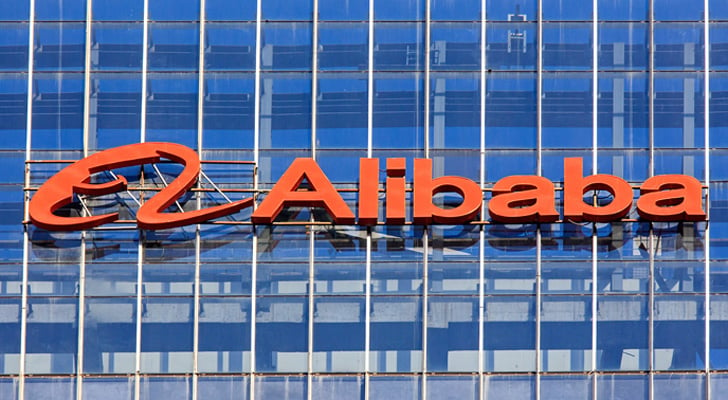Back in September, I predicted that Chinese e-commerce giant Alibaba Group Holding Ltd (NYSE:BABA) would make its way above $200. While it’s taken a little longer than I thought, shares of BABA stock are now in touching distance of the $200 mark which begs the question: Can it go even higher?
After an impressive run in 2017 and a great start to 2018, investors are starting to get nervous — and rightly so.
My colleague Tim Biggam said he believes $200 is the top for Alibaba stock, and he may well be right. BABA could be due for a pullback in the months ahead especially as the firm bumps up against some hard questions about its future. Now’s the time to decide whether the BABA stock price can keep climbing in the long term or if the company’s meteoric rise will start to fizzle.
Here are two big questions investors should consider before jumping into BABA stock for the long run.
Is International Growth Doable?
There’s no debating that Alibaba has been able to grow its e-commerce platforms exponentially within China. But there is a lot of uncertainty when it comes to expanding outside of the nation, both further afield in Asia and eventually overseas to Western markets.
Right now, it’s hard to focus on the company’s international expansion plans because there’s still such a long runway within China. As of September, BABA’s marketplace in China had 515 million buyers — that’s just over a third of the nation’s total population.
China’s e-commerce market is also still in the early stages with the business-to-customer market growing quickly. China’s e-commerce market still only makes up about 15% of the firm’s overall retail market, so there’s a huge growth opportunity within the nation’s borders alone.
However, it’s important to consider that at some point, Alibaba is going to have to break out of China, and then the firm will have to go up against heavyweights like Amazon.com, Inc. (NASDAQ:AMZN), whose experience and brand recognition will dwarf that of Alibaba’s in many countries.
Not only that, but BABA is facing competition from inside China as well. While BABA’s Taobao market is believed to be the first place most Chinese millennials go for online shopping, rivals like JD.Com Inc (ADR)
(NASDAQ:JD) are expanding quickly and grabbing up some of that market share.
Can You Handle the Risk?
Although BABA stock is often compared to its American counterpart Amazon, it’s important to note that BABA carries a great deal more risk than Amazon does.
Not only is Amazon a much more mature company, but the company is governed by familiar laws. Holding BABA in your portfolio gives you some exposure to China which is a great opportunity, but also carries more risk than holding an American security.
For one, the Chinese government doesn’t exactly have a reputation for transparency. There’s the possibility that economic figures painting a growing middle class and rising consumer spending could be projected through rose-colored lenses.
Then there’s the potential for BABA stock to issue Chinese shares. This move would be a huge opportunity both for Alibaba and investors.
Right now regulations in China prevent companies like Alibaba from listing on both the NYSE and in mainland China. But regulators are in talks about revising those rules to allow Chinese investors to invest in some of the nation’s largest tech firms — BABA included.
In some ways, this would be a boon as investors in Alibaba’s home country would have a better picture of how the company operates and what its future potential could be. However, a lot of risk enters the equation if BABA trades in China as the nation’s stock market has often been compared to a casino because of its highly speculative nature and volatile swings.
The Bottom Line on BABA Stock
BABA stock certainly comes with a great deal of risk, but there’s also a much higher possibility for a hefty reward as well. With the stock nearing $200, investors are right to start getting nervous about a pullback, especially with so much uncertainty attached to the company’s long-term future.
If you can stomach the risk, BABA certainly has the potential to fly higher this year with the majority of analysts on Wall Street setting an average price target of $229 for the company.
As of this writing, Laura Hoy was long AMZN.

